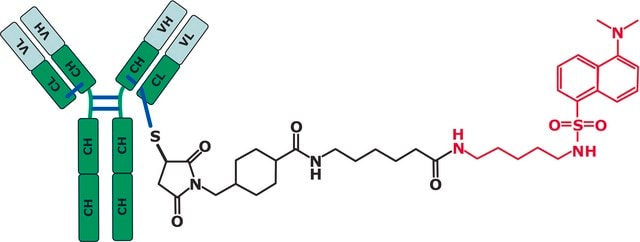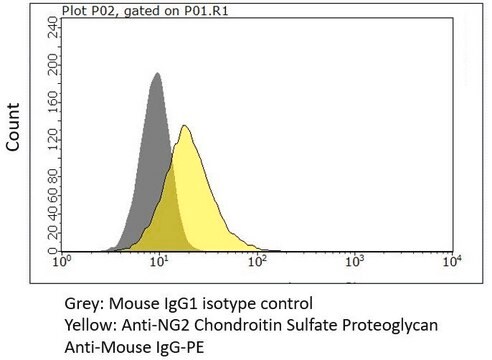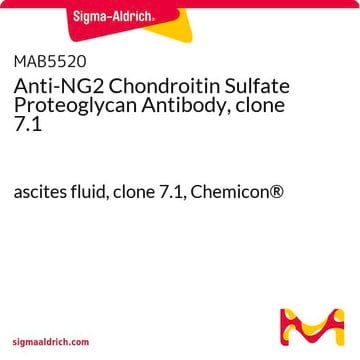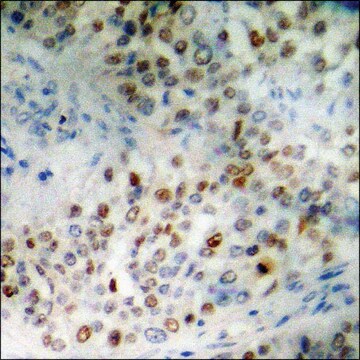MAB5384-I
Anti-NG2 Chondroitin Sulfate Proteoglycan Antibody, clone 132.38
clone 132.38, from mouse
Synonym(s):
Chondroitin sulfate proteoglycan 4, Chondroitin sulfate proteoglycan NG2, HSN tumor-specific antigen, NG2
About This Item
Recommended Products
biological source
mouse
antibody form
purified immunoglobulin
antibody product type
primary antibodies
clone
132.38, monoclonal
species reactivity
mouse, rat
packaging
antibody small pack of 25 μg
technique(s)
immunofluorescence: suitable
western blot: suitable
isotype
IgG1κ
NCBI accession no.
UniProt accession no.
target post-translational modification
unmodified
Gene Information
mouse ... Cspg4(121021)
rat ... Cspg4(81651)
General description
Specificity
Immunogen
Application
Neuroscience
Immunofluorescence Analysis: A 1:50 dilution from a representative lot detected NG2 Chondroitin Sulfate Proteoglycan in rat brain frozen sections, post-fixed in ethanol.
Quality
Western Blotting Analysis: 1 µg/mL of this antibody detected NG2 Chondroitin Sulfate Proteoglycan in NIH/3T3 cell lysate.
Target description
Linkage
Physical form
Storage and Stability
Other Notes
Disclaimer
Not finding the right product?
Try our Product Selector Tool.
recommended
Storage Class Code
12 - Non Combustible Liquids
WGK
WGK 2
Flash Point(F)
Not applicable
Flash Point(C)
Not applicable
Certificates of Analysis (COA)
Search for Certificates of Analysis (COA) by entering the products Lot/Batch Number. Lot and Batch Numbers can be found on a product’s label following the words ‘Lot’ or ‘Batch’.
Already Own This Product?
Find documentation for the products that you have recently purchased in the Document Library.
Our team of scientists has experience in all areas of research including Life Science, Material Science, Chemical Synthesis, Chromatography, Analytical and many others.
Contact Technical Service







